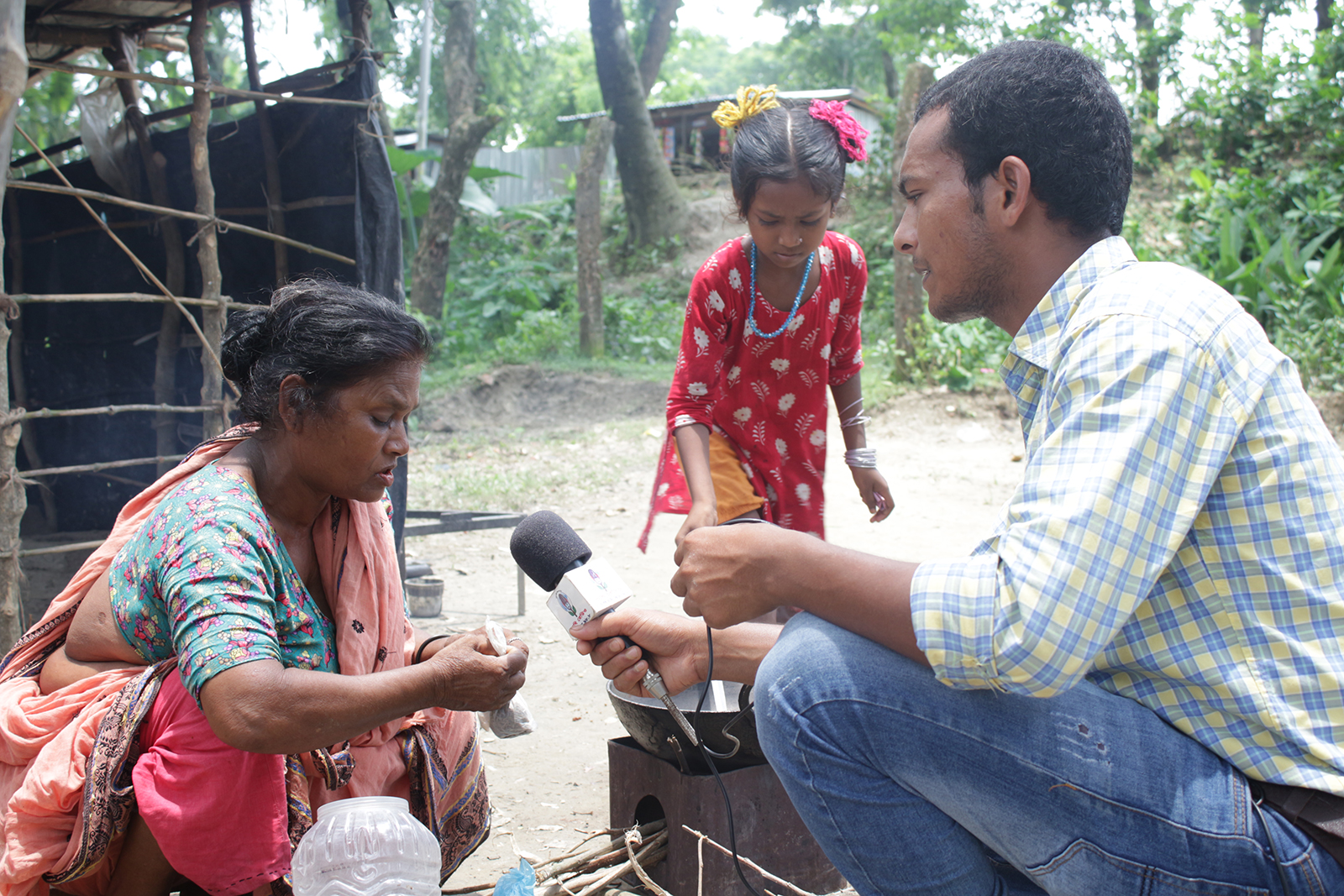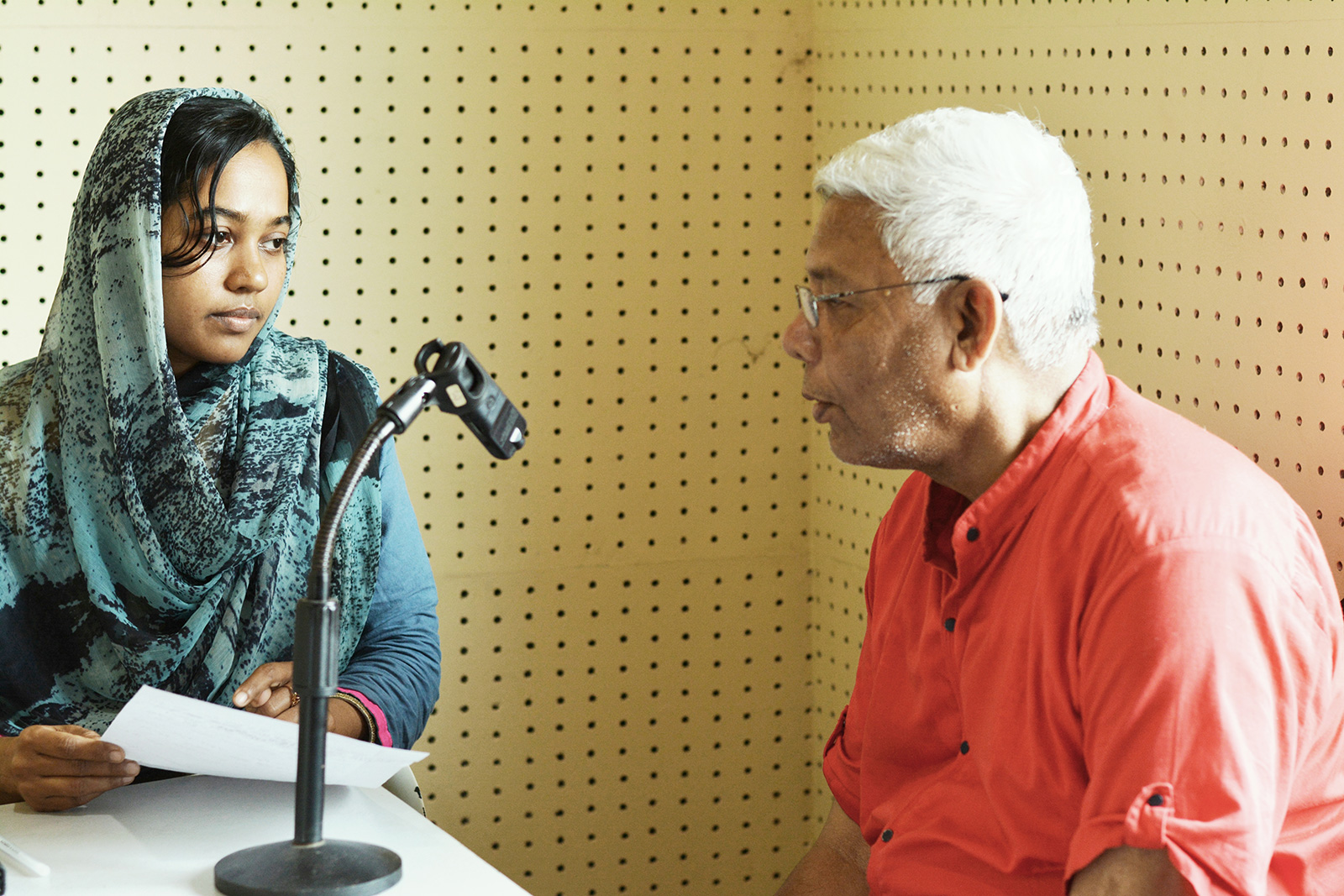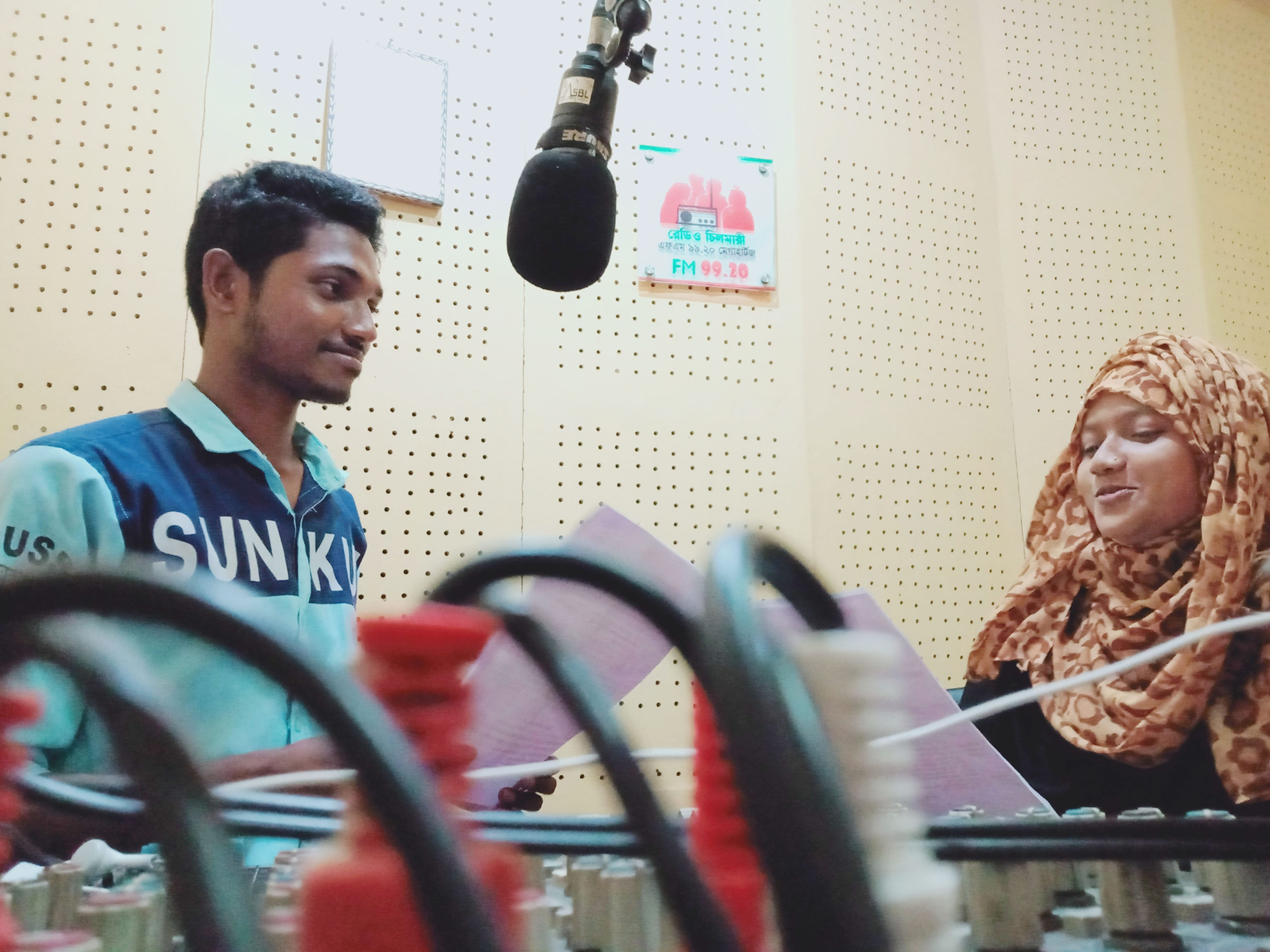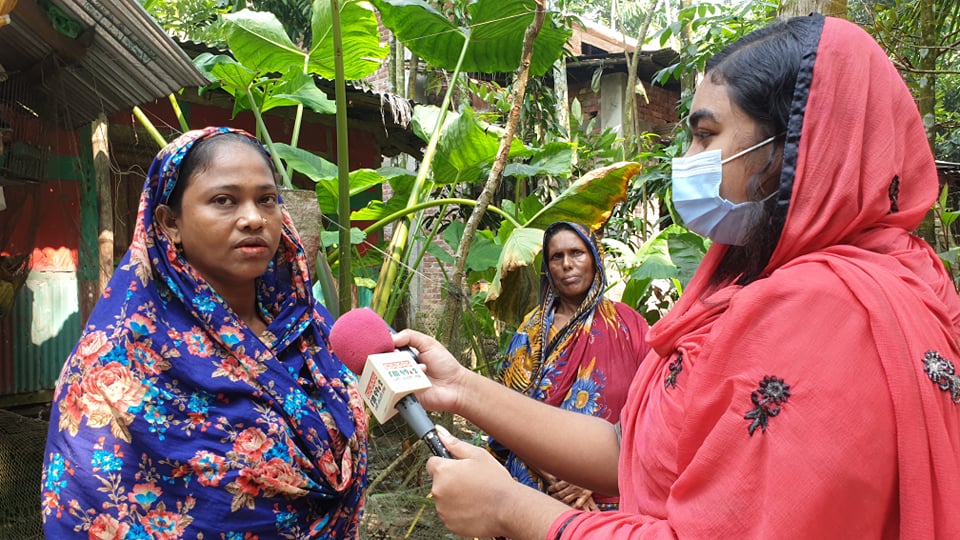Organization: Bangladesh NGOs Network for Radio and Communication (BNNRC)
Country: Bangladesh
Women in Bangladesh are targeted by online and technology-facilitated violence and harassment. While the expansion of ICT and growing internet penetration are considered as positive indicators of development in the country, but their interaction with certain pre-existing social-physiological settings related and inadequate legal protections have led to increased cyber violence against women. The issue has become a big challenge in Bangladesh. BNNRC has been implemented a program for Preventing the abuse of ICTs against women in Bangladesh through Community Media.
The goal of the initiative was to empower women by preventing abusive of ICTs against women in Bangladesh
The objective was to disseminate reliable and timely information to prevent abuse of ICTs against women in Bangladesh through Community Radio.
The intervention accelerated to prevent abuse of ICTs against women for keeping lives normal & easy.
In the age of fast-growing information technology, BNNRC provided the necessary information to the community people especially women and girls to protect from abuse ICTs for violating their fundamental rights and learn best practices.
Community radio stations endowed their critical understanding of how community media can better serve for preventing against the issue. The women understood the factors that drive trust in community media.
Partnership
List of Community Radio Stations for implementing the Project
Community Radio Nalta 99.2FM, Kaligonj, Satkhira
Email: info_radionalta@naltahospital.org.bd
Community Radio Lokobetar 99.2FM, Barguna Sadar, Barguna
Email: lokobetar@gmail.com
Community Radio Pollikontho 99.2FM, Matarkapon, Moulvibazar
Email: pollikontho@gmail.com
Community Radio Sagor Giri 99.2FM, Sitakunda, Chattogram
Email: sagorgiri@gmail.com
Community Radio Mahananda 98.8FM , Belepukur, Chapai Nawabgonj
Email: sm@radiomahananda.fm
Community Radio Mukti 99.2FM, Maloti Nagar, Bogura
Email: news.rmfm.bd@gmail.com
Community Radio Chilmari 99.2FM, Chilmari, Kurigram
Email: radiochilmari@gmail.com
Community Radio Jhenuk 99.2FM, Pabahati, Jhenaidah
Email: radiojhenuk@gmail.com
Community Radio Borendro 99.2FM, Naogaon Sadar, Naogoan
Email: 99.20fm@gmail.com, info.borendroradio@gmail.com
Community Radio Bikrampur 99.2FM, Dewbhogh, Munshigonj
Email: radio@ecbangladesh.org
Community Radio Meghna 99.0FM, Charfashion, Bhola
Email: info@radiomeghna.net
Community Radio Sagordwip 99.2FM, Hatiya, Noakhali
Email: radioshagordwip@gmail.com
Community Radio Sarabela 98.8FM, Radhakrishnapur, Gaibandha
Email: radiosarabela@gmail.com
Community Radio Boral 99.0FM, Bagha, Rajshahi
Email radioboral.program@gmail.com, sm@radioboral.org
Replicability
It is now common knowledge all over the world that preventing abusive of ICTs against women an emergency matter and impacts women and girls differently than men. On the other hand, as the community radio has always inspired the marginalized to share opinions to address political and social action, and promoting and ensuring equity in the society. Besides, it would be used as a tool for both active and passive communication and outreach in worldwide.
The activities to be implemented to aware the community people particularly women and girls about their human rights issues are positive which is replicable in any community.
Sustainability
In the context of Bangladesh, where there is already a high prevalence of violence against women, the risk is clearly greater. This leads to the legitimate expectation that there would be stronger commitments towards mitigating these risks in our national response through media.
A fundamental problem for citizens, especially women, girls and those in rural communities of our country, is that they are not aware of the rights and services they are entitled to and as a result, they cannot benefit from those opportunities. Therefore, it is imperative to provide better access to laws and services to more people, particularly women, to improve their situation. This can only be achieved by ensuring that they are aware of – and most importantly, understand-relevant information and support from a variety of sources. In this backdrop and to galvanize action to reduce violence against women, community radio can be an easily accessible and effective platform in media campaigns to prevent abusive of ICTs against women.
Besides, by linking the Social media platform will ensure that the program will have a deep, sustainable and multiplying impact, where the indirect beneficiaries will exceed several thousands.
WSIS values promotion
Through this intervention, WSIS values in Bangladeshi communities is strongly adhered and promoted extensively. This is done through increase communities especially women and girl’s child awareness to take appropriate actions and preventive measures abusive of ICTs against women
WSIS action lines
The project has addressed the Action Line C-10 (Ethical Dimensions of the Information Society).
Sustainable development goals (SDGs)
SDG 16: Promote just, peaceful and inclusive societies and Gender equality-SDGs: 5
Contribution to the implementations of WSIS Action Lines and the Sustainable Development Goals
The project has addressed the Action Line C 10 (Ethical Dimensions of the Information Society). Until to sensitize the wider community especially the male groups on the importance of gender equality and show their solidarity, tolerance towards women and acknowledge their contribution in family and society, it is impossible to build an inclusive and peaceful society.
The awareness campaign through community media and social platforms, the community people particularly youth groups were informed about the adverse effect of violence against women and also encourage to share the responsibilities all actors in the information society were sensitized to promote the common good and to prevent all forms of violence and abuse of women and children uses of ICT’s.
The program is facilitating SDG-16 and SDGs-5: Promote peaceful and inclusive societies and gender equality for sustainable development, provide access to justice for all, and build effective, accountable, and inclusive institutions at all levels: Providing access to information and knowledge to people is also important to fostering tolerance, solidarity between people and contributes to more peaceful societies.
Impact
The damage caused by violence against women in Bangladesh is very high. On the other hand, the closure of schools and having everyone staying at home has increased the number of violence.
The Community Radio stations with their new ideas are working for preventing the abuse of women using ICT. The claim for evidence concepts analytical depth and skills to broadcast programs to prevent harassment and violence against women. It is necessary to learn best practices in the ethical program.
Deepened their critical understanding of how community media can better serve in a vastly expanded media environment. Understood the factors that drive trust in community media and how much trust can be sustained or rebuilt.
Addressing the situation, the programs raised awareness among 8 million community audiences particularly youth who learned about the consequences of abuse of women using ICT.
Challenges
Mobilizing media on the theme would be a huge task with limited data and information from the ground. The media outlets need to understand more about what causes of to prevent abuse of women using ICT. The media need to know where to look for these causes and solutions. Lack of experienced resource persons to train the media is another challenge faced by the media.
The interventions have certainly generated tremendous enthusiasm among the participating community radio which encourages the media outlets to further plan and design how best to extend and expand the ideas among all print and electronic media.
Due to COVID – 19 pandemic, 60% of community Radio Broadcasters were staying at home. So, the radio was running virtually and by 40% of broadcasters. Community Radio Stations have been facing difficulties to organize programs virtually due to poor internet services. Also, community people hesitated to speak to the radio programs and capturing the voices of the victims, general mass, and experts virtually.
In spite of these challenges, the campaign has certainly generated awareness among the community people and other stakeholders which encourages the organization to further plan and design how best to extend and expand the campaign will new formats and dimensions.
Photo:






